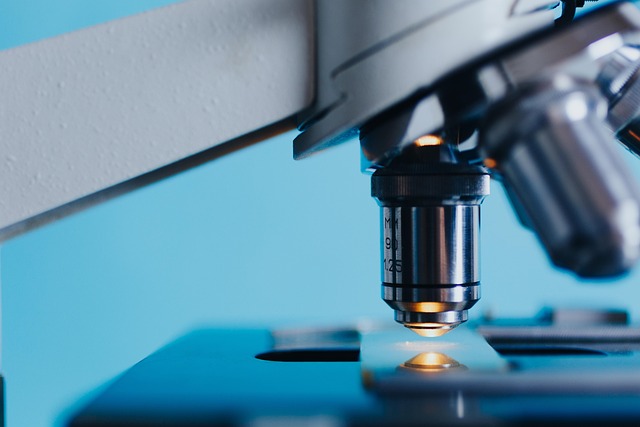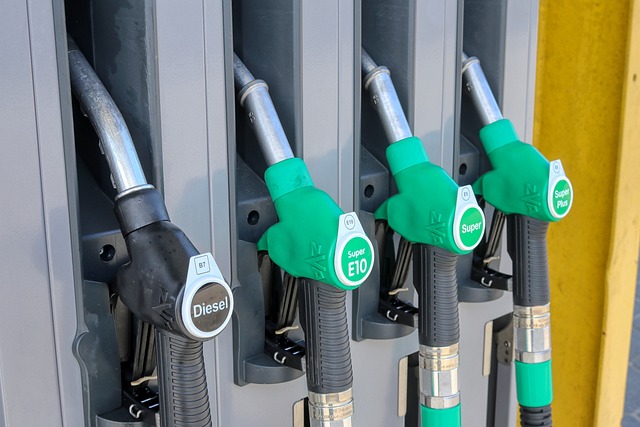Laser Skin Rejuvenation Procedures Available in United Kingdom
Laser skin rejuvenation is an advanced treatment option in United Kingdom designed to improve skin texture and reduce signs of aging. This modern approach utilizes focused laser technology to target imperfections, promoting collagen production and enhancing overall skin health. Individuals interested in contemporary skin treatments may find this method beneficial for achieving a more youthful appearance.

Laser skin rejuvenation represents one of the most significant advancements in non-surgical cosmetic treatments available throughout the United Kingdom. These procedures harness the power of focused light energy to address multiple skin concerns simultaneously, offering patients noticeable improvements with minimal downtime. As technology continues to evolve, UK clinics now provide an impressive range of laser treatments tailored to different skin types, concerns, and desired outcomes. Understanding these options can help individuals make informed decisions about which procedure might best suit their specific needs.
Understanding Laser Skin Rejuvenation Techniques for Effective Results
Laser skin rejuvenation encompasses several distinct techniques, each designed to target specific skin issues. Ablative lasers, such as CO2 and Erbium YAG, work by removing thin layers of skin to stimulate new collagen production and cell regeneration. These powerful treatments effectively address deeper wrinkles, scars, and significant sun damage but typically require more downtime for recovery. Non-ablative lasers, meanwhile, leave the outer skin layer intact while heating underlying tissues to stimulate collagen production. These gentler treatments, including Nd:YAG and pulsed dye lasers, often require multiple sessions but involve minimal recovery time.
Fractional laser technology represents a middle-ground approach that has gained significant popularity across UK clinics. This technique creates thousands of microscopic treatment zones in the skin while leaving surrounding tissue untouched, allowing for faster healing. Fractional treatments can be either ablative or non-ablative, providing practitioners with versatile options to address various skin concerns with customized intensity levels. The appropriate technique depends largely on the patient’s skin condition, desired results, and tolerance for downtime.
The Benefits of Laser Treatments for Skin Health and Appearance
Laser skin rejuvenation offers numerous advantages beyond traditional skincare methods. Perhaps most significantly, these treatments stimulate natural collagen production, which continues to improve skin texture and firmness for months following the procedure. This progressive enhancement makes laser treatments particularly effective for addressing age-related concerns like fine lines and loss of elasticity. Additionally, lasers can precisely target specific issues such as hyperpigmentation, rosacea, and vascular lesions without affecting surrounding tissues.
The versatility of laser treatments allows practitioners to customize procedures based on individual needs. Many UK clinics now offer combination approaches, utilizing different laser wavelengths to address multiple concerns simultaneously. For instance, a treatment plan might incorporate both Intense Pulsed Light (IPL) for surface pigmentation and a fractional laser for textural improvements. This comprehensive approach delivers more dramatic results than single-modality treatments while maintaining reasonable recovery timeframes. Furthermore, modern laser technologies incorporate advanced cooling systems and precise energy delivery mechanisms that significantly reduce discomfort during treatment.
What to Expect During and After Laser Skin Rejuvenation Sessions
Before undergoing laser skin rejuvenation, patients typically attend a consultation where practitioners assess skin condition, discuss goals, and determine the most appropriate treatment approach. During this appointment, the clinician will explain pre-treatment requirements, which often include avoiding sun exposure, certain medications, and specific skincare products. On the day of treatment, the procedure begins with thorough cleansing followed by the application of topical anesthetics for comfort, particularly with more intensive laser treatments.
The actual laser session usually lasts between 30 minutes to an hour, depending on the treatment area and specific technique. Patients commonly report sensations ranging from mild warmth to brief, sharp feelings similar to rubber band snaps against the skin. Immediately after treatment, the skin typically appears red and may feel sensitive, similar to a sunburn. Recovery varies significantly based on the laser type—non-ablative treatments might cause redness for just 1-2 days, while more intensive ablative procedures can require 1-2 weeks of healing time. Most UK clinics provide detailed aftercare instructions, including gentle cleansing protocols, moisturizing regimens, and strict sun protection measures to optimize results and minimize complications.
Popular Laser Skin Rejuvenation Procedures in the UK
Clinics across the United Kingdom offer several widely sought-after laser treatments to address various skin concerns. Fractional CO2 laser therapy remains one of the most comprehensive options for significant skin rejuvenation, effectively treating deeper wrinkles, acne scars, and sun damage with impressive results after just one session. For those seeking gentler approaches with minimal downtime, Clear + Brilliant has gained popularity as a preventative treatment that improves skin tone and texture through microscopic treatment zones that refresh skin from the inside out.
IPL (Intense Pulsed Light) treatments, while technically not lasers but often grouped with them, are widely available throughout the UK for treating pigmentation issues, rosacea, and vascular concerns. For specific texture concerns, Fraxel treatments offer customizable intensity levels to address everything from fine lines to deeper acne scarring. Newer to the UK market but gaining traction is PicoSure, which uses ultra-short pulse durations to target pigmentation and stimulate collagen without excessive heat, making it suitable for a wider range of skin types including those with darker complexions.
Laser Treatment Providers and Cost Comparison in the UK
Laser skin rejuvenation services are available through various providers across the United Kingdom, ranging from specialized dermatology clinics to medical spas and aesthetic centers. The cost of these treatments varies significantly based on the specific technology used, the practitioner’s expertise, geographic location, and the number of sessions required.
| Treatment Type | Average Cost Range (£) | Typical Sessions Needed | Common Providers |
|---|---|---|---|
| Fractional CO2 | £500 - £1,200 per session | 1-3 sessions | SK:N Clinics, The Harley Medical Group, Courthouse Clinics |
| Non-ablative Fractional | £300 - £800 per session | 3-5 sessions | Transform, Destination Skin, The Private Clinic |
| IPL Treatments | £150 - £400 per session | 3-6 sessions | Pulse Light Clinic, DestinationSkin, Therapie Clinic |
| Clear + Brilliant | £200 - £450 per session | 4-6 sessions | EF MEDISPA, PHI Clinic, Medicetics |
| PicoSure | £350 - £600 per session | 3-4 sessions | The Cadogan Clinic, Dr. Tatiana Clinic, Premier Laser |
Prices, rates, or cost estimates mentioned in this article are based on the latest available information but may change over time. Independent research is advised before making financial decisions.
It’s worth noting that many clinics offer package pricing for multiple sessions, which can reduce the overall cost. Additionally, geographic location significantly impacts pricing, with London-based clinics typically charging premium rates compared to those in other UK regions. Most reputable providers offer free consultations where patients can discuss treatment plans and receive personalized cost estimates before committing to procedures.
Choosing the Right Laser Treatment for Your Skin Concerns
Selecting the most appropriate laser skin rejuvenation procedure requires careful consideration of several factors. Skin type plays a crucial role in determining suitable treatments, as certain lasers carry higher risks of hyperpigmentation or hypopigmentation for darker skin tones. The specific concerns being addressed also guide treatment selection—deeper wrinkles and scars typically respond better to ablative or more intensive fractional treatments, while surface issues like mild pigmentation might be effectively treated with gentler options like IPL or non-ablative lasers.
Patients should also consider their tolerance for downtime when choosing between treatment options. While more intensive procedures often deliver more dramatic results with fewer sessions, they require longer recovery periods during which the skin may appear red, swollen, or peeling. Those unable to accommodate such downtime might prefer a series of gentler treatments spread over several months. Finally, consulting with multiple qualified practitioners allows patients to compare approaches, technologies, and expertise before making an informed decision about their treatment path.
Laser skin rejuvenation continues to evolve with new technologies regularly entering the UK market. These advanced procedures offer effective solutions for numerous skin concerns, from signs of aging to sun damage and scarring. When performed by qualified practitioners using appropriate technologies, these treatments can provide significant improvements to skin quality and appearance. However, realistic expectations remain essential—while laser treatments can dramatically enhance skin condition, results vary between individuals, and maintenance treatments may be necessary to preserve improvements over time.
This article is for informational purposes only and should not be considered medical advice. Please consult a qualified healthcare professional for personalized guidance and treatment.




